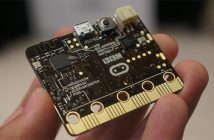
A survey conducted by Gallup and sponsored by Google has shed light on why more kids aren’t being prepared for computer science careers. They found that, among other reasons, schools felt the subject was unimportant.
The poll surveyed 15,000 students, parents, teachers, principals, and superintendents across the nation. A majority agreed that computer science was just as important to future success as other, more traditional subjects.
Parents and students felt that computer science was extremely important, writes Tomas Monzon of Wired. 9 in 10 parents viewed computer science education as a good use of school resources, and two thirds said that computer science should be required learning. Low-income parents were even more likely to hold that view. However, only 7% of administrators believe that there is high parent demand for computer classes, reports Monzon for UPI.
According to the principals surveyed, three quarters said that their schools have no computer science programs or coding classes. Of those that do, only one fifth offer AP classes in the area.
The survey’s authors said administrators make trade-offs with computer science coming up short:
Most principals and superintendents surveyed say it is important to offer computer science education. However, given the tendency to prioritize subjects that are included in required testing, computer science is not a top priority.
Less than half of principals and superintendents surveyed say their school board thinks offering computer science education is important.
According to Frederic Lardinois of Tech Crunch, the main barriers to computer science for school administrators are limited time for activities that aren’t in testing requirements, an inadequate budget, and a lack of computer science teachers. Only 10% said that access to software or hardware was a problem.
Bennet Brown, Director of Curriculum at nonprofit Project Lead the Way, has developed a K-12 computer science program. He said that staff training is the key to more computer science options in schools:
With most K-12 teachers having little or no CS experience in their own education, professional development is critical to help them gain content knowledge and confidence.
A different Google study suggests that those who took a computer science AP exam were 46% more likely to be interested in majoring in computer science, implying that exposure to these courses will attract students to the field.
Access to these classes are an even bigger problem for historically underserved groups, including black students, Hispanic students, women, and low-income students. 98% of white students have a computer with internet access compared to 85% of black students and 75% of Hispanic students. However, 90% of students of all races and genders have access to the internet through a phone or tablet, making mobile technology a possible avenue for education.
Despite the bleak picture, access to computer science education is improving, according to half of the principals surveyed, and Google is already trying to remedy the situation.
Google’s RISE Awards gives out grants to worldwide organizations that promote computer science education for underserved populations, and Made With Code is a campaign to involve more girls in the field.
USA Today quoted Hai Hong, leader of Google’s K-12 outreach programs, who says that improving computer science education is a mix of encouraging development and changing perceptions:
Half the battle is simply having the premise wrong, with [school]leaders thinking interest in CS is not high. Hopefully this study will help eliminate this misconception.
Giving students access to CS is the right thing to do. It offers problem-solving skills and promotes creativity. It’s also in our long-term interest, since in 10 to 15 years these students will be our technologists.
Google’s next Gallup project will investigate stereotypes and biases that might deter students from pursuing computer science education.




